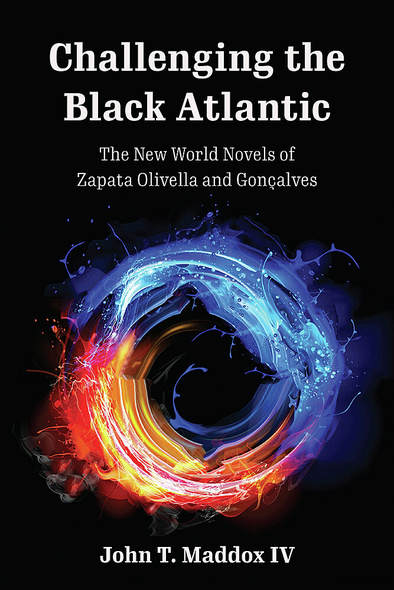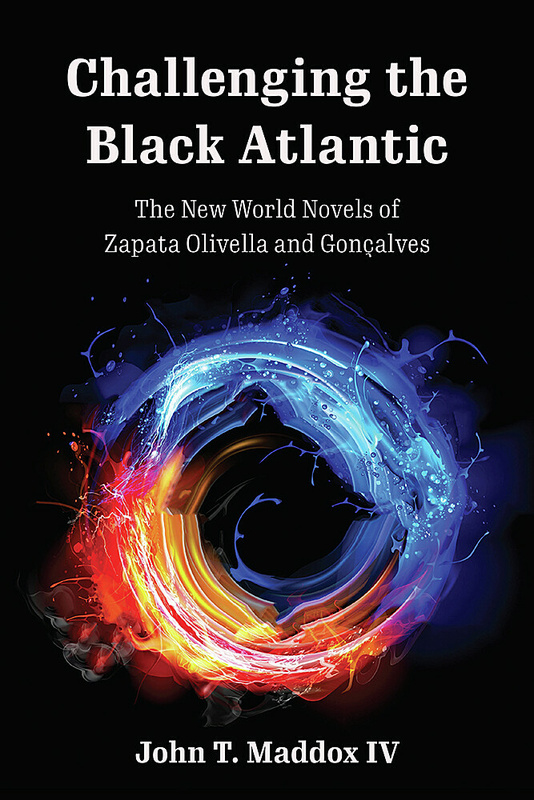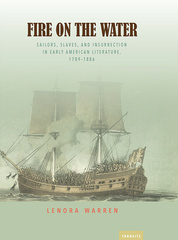
350 pages, 6 x 9
Paperback
Release Date:16 Oct 2020
ISBN:9781684481866
Hardcover
Release Date:16 Oct 2020
ISBN:9781684481873
Challenging the Black Atlantic
The New World Novels of Zapata Olivella and Gonçalves
Bucknell University Press
The historical novels of Manuel Zapata Olivella and Ana Maria Gonçalves map black journeys from Africa to the Americas in a way that challenges the Black Atlantic paradigm that has become synonymous with cosmopolitan African diaspora studies. Unlike Paul Gilroy, who coined the term and based it on W.E.B. DuBois’s double consciousness, Zapata, in Changó el gran putas (1983), creates an empowering mythology that reframes black resistance in Colombia, Haiti, Mexico, Brazil, and the United States. In Um defeito de cor (2006), Gonçalves imagines the survival strategies of a legendary woman said to be the mother of black abolitionist poet Luís Gama and a conspirator in an African Muslim–led revolt in Brazil’s “Black Rome.” These novels show differing visions of revolution, black community, femininity, sexuality, and captivity. They skillfully reveal how events preceding the UNESCO Decade of Afro-Descent (2015–2024) alter our understanding of Afro-Latin America as it gains increased visibility.
Published by Bucknell University Press. Distributed worldwide by Rutgers University Press.
Published by Bucknell University Press. Distributed worldwide by Rutgers University Press.
Maddox succeeds in adding to the Black Atlantic paradigm, taking it in a decidedly Latin-American direction. At the center of his theoretical intervention, he compellingly offers Zapata’s version of the Nuevo Munto as a foundational construct—a search for a profoundly historical and spiritual recognition of African identity, and a vision of just world for the present and future.
An innovative and ground-breaking attempt to examine the nuances of the Black Atlantic Theory via diaspora...highly recommended for a variety of audiences.
John Maddox’s Challenging the Black Atlantic is as monumental as the historical sagas the book studies. . . . Originally conceived, meticulously researched, and well written and argued, the book is an intellectually sophisticated interdisciplinary study that will certainly leave its vital mark in the field of Afro-diaspora studies for years to come. A must read!
Maddox offers us a refreshingly provocative revision of Black Atlantic theory and African diasporic authorship across Luso-Hispanic communities. His insightful readings will further enrich our understanding of the complex and nonlinear facets of African diasporic Blackness, Black Atlantic religious traditions, and Black women in impactful, new ways.
Maddox offers us a refreshingly provocative revision of Black Atlantic theory and African diasporic authorship across Luso-Hispanic communities. His insightful readings will further enrich our understanding of the complex and nonlinear facets of African diasporic Blackness, Black Atlantic religious traditions, and Black women in impactful, new ways.
John Maddox’s Challenging the Black Atlantic is as monumental as the historical sagas the book studies. . . . Originally conceived, meticulously researched, and well written and argued, the book is an intellectually sophisticated interdisciplinary study that will certainly leave its vital mark in the field of Afro-diaspora studies for years to come. A must read!
An innovative and ground-breaking attempt to examine the nuances of the Black Atlantic Theory via diaspora...highly recommended for a variety of audiences.
Maddox succeeds in adding to the Black Atlantic paradigm, taking it in a decidedly Latin-American direction. At the center of his theoretical intervention, he compellingly offers Zapata’s version of the Nuevo Munto as a foundational construct—a search for a profoundly historical and spiritual recognition of African identity, and a vision of just world for the present and future.
JOHN T. MADDOX IV is an assistant professor of Spanish and African American studies at the University of Alabama at Birmingham.
Introduction: This Book, Manuel Zapata Olivella, and Ana Maria Gonçalves
a Manuel Zapata Olivella (1920–2004)
b Zapataolivellismo
i The U.S. Context
ii The Latin American Context
c Ana Maria Gonçalves (b.1970)
d The Bourgeoning Criticism on Ana Maria Gonçalves
e Changó and Defeito: Summaries
i Changó el gran putas (1983)
ii Um defeito de cor (2006)
1 Myth, Literature, and History in Zapata
a Muntu, Nuevo Muntu, and Changó’s Curse
i Influences
ii Placide Tempels and the Muntu
iii The Curse
b The Origin Myth of Benkos Bioho
2 Afro-Brazil in Defeito and Changó
a Luís Gama: History, Myth, and Literature
b Luísa Mahin: From Poetry to History
c Quilombos in Changó
i Aleijadinho and Zumbi
d Quilombos and Terreiros of Defeito
i Gender and Myth in Dahomey
e Conclusion
3 Double Consciousness and Nation in Gilroy and Zapata
a The Black Atlantic and the Nuevo Muntu
i The Black Atlantic: Summary
ii After The Black Atlantic
iii Representative Critics of Gilroy in the Anglophone Tradition
b Du Bois in Changó
i Zapata’s Du Bois
ii Double Consciousness
iii Music, Orality, and the Sea
iv The African Diaspora is part of a New World History beyond the Nation
c. Zapata, Precursor of Today’s Latin Americanist Critics of Gilroy
4 Women, Gender, and the Nuevo Muntu
a The Black Atlantic from an Afro-Brasileira’s Point of View
i. Domingos Álvares and the Black Atlantic Kingdom of Dahomey
ii. Gonçalves and Antônio Olinto’s Black Atlantic
iii. Luís Gama’s Brazil in the Black Atlantic
b Rape in the Novels of Zapata and Gonçalves
i. Sons of God and the She-Devil
ii. Mother Africa
iii. Gonçalves’s Raw Realism of Rape
c Changó / Santa Bárbara and Queer Characters
d Agne Brown and the Apocalypse
Conclusion: The Nuevo Muntu Today and Tomorrow
a El Putas, U.S.A.
b Nuevo Muntu History and Gonçalves’s Journalism
c Afrofuturism
i Brazil
ii Latinx-futurism
iii Ana Maria Gonçalves
Acknowledgements
Bibliography





